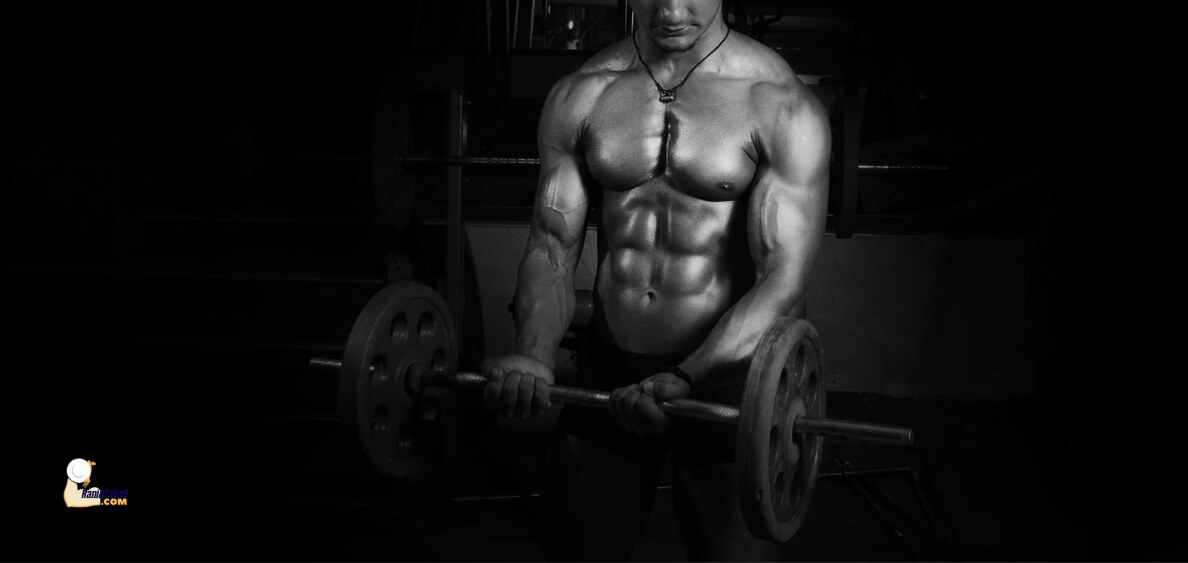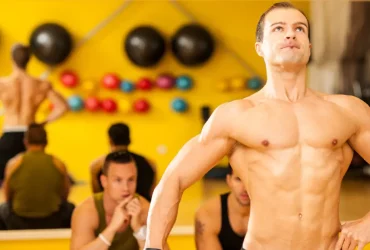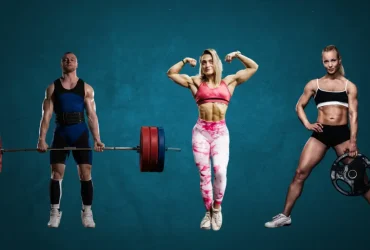Bodybuilding is a sport or activity that involves developing and building muscle mass through intensive weight training and exercise. The goal of bodybuilding is to create a sculpted, muscular physique with well-defined muscles and low body fat.
Bodybuilding
Bodybuilding involves a combination of weightlifting, cardio exercise, and a carefully planned diet that is high in protein and low in fat and carbohydrates. The weightlifting component of bodybuilding is focused on lifting progressively heavier weights to stimulate muscle growth and development. This is typically achieved through compound exercises like squats, deadlifts, bench presses, and other exercises that work multiple muscle groups at once.
Cardio exercise is also important in bodybuilding, as it helps to burn excess fat and improve cardiovascular health. This can include activities like running, cycling, or high-intensity interval training.
Diet is also a crucial component of bodybuilding, as proper nutrition is essential for building and repairing muscles. Bodybuilders typically consume a diet that is high in protein, with moderate amounts of carbohydrates and low amounts of fat. They may also use supplements like protein powder and creatine to support muscle growth and recovery.
Bodybuilding is a challenging and demanding sport that requires dedication, discipline, and hard work. However, for those who are willing to put in the time and effort, it can be a rewarding way to build strength, improve health, and achieve a sculpted, muscular physique.
6 Bodybuilding techniques you should know
There are several bodybuilding techniques that individuals can use to achieve their desired physique. Some of the most common bodybuilding techniques include:
1 -Bodybuilding and Progressive Overload:
This technique involves gradually increasing the weight or resistance used in training to continually challenge the muscles and promote growth.
2 – Supersets:
Supersets involve performing two exercises back-to-back with little to no rest in between. This helps to increase intensity and fatigue the muscles more quickly.
3 – Drop Sets:
Drop sets involve performing an exercise with a heavy weight until failure, then immediately reducing the weight and continuing to perform reps until failure again. This helps to increase muscle fatigue and promote growth.
4 – Isolation Exercises:
Isolation exercises target specific muscles and help to improve definition and muscle separation. Examples of isolation exercises include bicep curls and leg extensions.
5 – Compound Exercises:
Compound exercises involve working multiple muscle groups at once and are effective for building overall strength and mass. Examples of compound exercises include squats, deadlifts, and bench presses.
6 – Rest-Pause Training:
Rest-pause training involves performing an exercise until failure, taking a short break, and then continuing to perform reps until failure again. This technique helps to increase muscle fatigue and promote growth.
Techniques are designed to help individuals achieve their desired physique by promoting muscle growth and improving strength and endurance. It’s important to remember that each individual’s body responds differently to different techniques, so it’s important to experiment and find the techniques that work best for you.
Bodybuilding Nutrition:
Is a critical component of building muscle mass and achieving a well-defined physique. A proper bodybuilding diet should provide the necessary macronutrients (proteins, carbohydrates, and fats) and micronutrients (vitamins and minerals) to support muscle growth, repair, and recovery.
Protein is the most important macronutrient for bodybuilding as it is essential for muscle growth and repair. Bodybuilders typically consume 1-1.5 grams of protein per pound of body weight per day from sources such as lean meats, eggs, dairy products, and protein supplements.
Carbohydrates are also important for bodybuilding as they provide the energy necessary to fuel workouts. Bodybuilders typically consume complex carbohydrates such as brown rice, sweet potatoes, and whole-grain bread, while limiting simple carbohydrates like sugar.
Fats are also important for bodybuilding as they provide the necessary energy for intense workouts and support hormone production. Bodybuilders typically consume healthy fats such as nuts, seeds, avocado, and olive oil.
Micronutrients are also critical for bodybuilding nutrition, as they support overall health and aid in muscle recovery. Bodybuilders should consume a wide variety of fruits and vegetables to ensure they are getting adequate amounts of vitamins and minerals.
In addition to macronutrients and micronutrients, bodybuilders may also use supplements to support muscle growth and recovery. Common supplements used in bodybuilding include protein powder, creatine, beta-alanine, and branched-chain amino acids.
Overall, bodybuilding nutrition is focused on providing the body with the necessary nutrients to support muscle growth and recovery while maintaining overall health and wellness. A well-planned bodybuilding diet, combined with consistent training, is essential for achieving a well-defined, muscular physique.







Leave a Reply